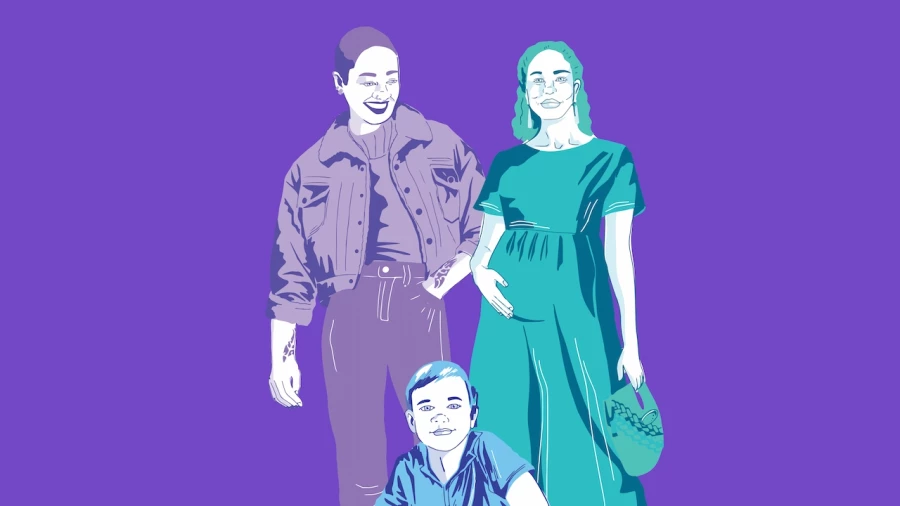
Hapūtanga
How alcohol affects your baby

We all can play a role in supporting people who are hapū to be alcohol free. This ensures that pēpi are safe today, and we understand the impacts of alcohol on future generations.
Drinking while pregnant
Do not drink alcohol if you are pregnant, might be pregnant, or are trying to get pregnant.
Alcohol is not safe, regardless of:
- type: all alcohol can harm pēpi, including low-alcoholic drinks
- amount: any amount of alcohol can harm your baby
- time: your baby can be affected at any stage of a pregnancy, from before you know you are hapū, till the very end when pēpi is born.
Tangata whenua have understood the impact of alcohol on tamariki for generations, before any official advice from health organisations. Iwi opposition eventually led to Māori-led initiatives to restrict alcohol use and petitions to government.
Our children are not born healthy because the parents drink to excess, and the child suffers.End Quote
How alcohol can harm your baby
When you’re hapū, you often get mixed opinions from whānau, friends, or even some health workers about what’s best for pēpi.
When it comes to alcohol, the best thing to do is to stop drinking. Stopping will increase the chance of your baby being healthy. Talk to your midwife or doctor if you’ve been drinking at all and are worried about it.
When you’re pregnant, every time you drink alcohol, your baby is drinking it too. Alcohol is carried in your blood, through the placenta, directly to your baby. Your baby cannot break down alcohol like you can.
A baby’s brain is still forming while in the womb, and can be affected by any alcohol exposure.
Drinking any alcohol while pregnant brings the following risks: miscarriage, still births, preterm birth, and Fetal Alcohol Spectrum Disorder (FASD).
I didn’t know. There was that myth of the placenta being a filter [...] I never realised until we got the [FASD] diagnosis.End Quote
Fetal Alcohol Spectrum Disorder (FASD)
Fetal Alcohol Spectrum Disorder (FASD) refers to permanent brain and body damage caused by exposure to alcohol in the womb.
It is difficult and takes a lot of time to get an official diagnosis for FASD. It’s not just something you can tell by looking at someone’s face.
You can never explain it to someone; it’s a condition [about] what’s not seen.End Quote
Every person with FASD has different symptoms and challenges related to:
- motor skills
- physical health
- learning
- memory
- attention
- communication and language
- regulating emotions
- social skills.
Sometimes these signs do not show until a child is older and starts school.
FASD affects people of all ages and walks of life. In many cases, people with FASD in Aotearoa are unable to access disability support or the care they deserve. This adds to the shame and stigma that many already experience.
FASD is a lifelong disability that many of us cannot see. It affects around 1,800 newborns in Aotearoa each year, and the total number of people living with FASD is unknown.
There is no cure for FASD, but it is preventable by not drinking while pregnant.
We were always brought up with an understanding that wāhine kōpu had a special status within the whānau. They were really taken care of.End Quote
Protecting pēpi together
The best way to protect an unborn baby is to provide a safe, supportive environment. This is something that everyone around a hapū person can contribute to.
Wāhine hapū have a special, prized status in many whānau. They are entitled to be treated as such so that they can move into parenthood filled with hope and aroha.
Things can however be challenging for some people who are hapū. For some, it involves shifting away from normal habits. If alcohol is often used for whanaungatanga or just getting through the day, stopping can come with a social or emotional cost.
It’s important to make sure the hapū person is not drinking, but know that it can take time and effort to adjust, so take it easy on them.
In many cultures, it is also considered a sign of disrespect to turn down hospitality, especially at events, when visiting someone’s home or in public situations. This adds to overall pressure for anyone who refuses alcohol for personal reasons. For someone who may or may not be hapū, they may be worried that news of their pregnancy gets made public sooner than they want.
Regardless of whether or not someone is hapū, there are some simple rules we can all keep in mind:
- Do not ever pressure anyone into drinking.
- If someone refuses to accept alcohol, they do not need to explain why.
- If you see peer pressure, step up if you feel comfortable doing so.
- If you know someone is trying to quit, ask how you can support them. Sometimes it’s just about being there as a distraction.
Thank you for your feedback.
You can also find a support service if you need to talk to someone.